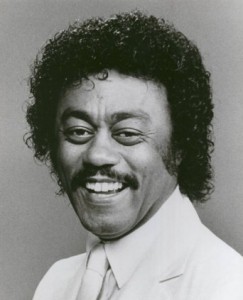 It’s almost impossible to overstate Johnnie Taylor’s importance to southern soul music and for that matter popular music. His career, which extended back to the very birth of soul music and to gospel before that, exemplified both the music’s staying power and its stylistic flexibility. He spanned multiple genres and generations while never relinquishing the masterful vocal technique—passionate, deeply soulful, yet meticulously crafted—that was his calling card from the beginning.
It’s almost impossible to overstate Johnnie Taylor’s importance to southern soul music and for that matter popular music. His career, which extended back to the very birth of soul music and to gospel before that, exemplified both the music’s staying power and its stylistic flexibility. He spanned multiple genres and generations while never relinquishing the masterful vocal technique—passionate, deeply soulful, yet meticulously crafted—that was his calling card from the beginning.
Johnnie Taylor was—to put it mildly—a free spirit, even by the somewhat disingenuously permissive standards of the gospel world. In 1960, after a police investigation following an auto accident found him to have been driving under the influence of marijuana, he unrepentantly left the Stirrers to become a Baptist preacher (“The Reverend Johnnie Taylor [Formerly with the Soul Stirrers]”). By the following year, though, he was recording for SAR as a secular artist. His first chart hit was in 1963 on the SAR affiliate label Derby, but he didn’t really hit his stride until1966, when he joined Stax and quickly hit No. 19 with his debut for the label, an Isaac Hayes / Dave Porter blues number called I Had a Dream. He remained with the Memphis soul powerhouse until 1975, recording such classic numbers as Who’s Making Love, Steal Away, Jody’s Got Your Girl and Gone, I Believe In You (You Believe In Me) and the jazz-tinged Cheaper to Keep Her, among others; all told, he charted on Stax 24 times. In 1976, having moved to CBS, he leapt aboard the disco bandwagon and came up with the biggest-selling hit of his career, Disco Lady.
Taylor’s last Top 10 single was Love Is Better In the A.M. (Part 1) on Columbia in 1977. By 1984 he had joined Malaco Records, where he recorded 13 albums over the next 18 years (one, 1998’s Cheaper to Keep Her, was issued on the 601 Music subsidiary). His first release for the label was This Is Your Night in 1984 with five George Jackson–penned tunes including Still Called the Blues and She’s Cheatin’ on Me. He quickly followed with Wall to Wall (1985), Loverboy (1987), In Control (1988) and Crazy ’Bout You (1989) to round out the decade.
On Malaco, he quickly rose again as one of the top stars in the new southern soul (or “soul blues”) field. Good Love, which peaked at No. 39 in 1996, was his most commercially successful latter-day recording (all told, he charted five times during his Malaco tenure). His LPs fared somewhat better: Good Love!, his eighth for Malaco, hit No. 1 on the Billboard blues album chart and No. 15 on the R&B album chart in 1996.
Many of the songs Johnnie Taylor recorded for Malaco became instant classics, and they’ve remained so. Gems like, Crazy Over You (from 1991’s I Know It’s Wrong . . . But I Can’t Do Right); Back Street Love Affair (from 1994’s Real Love); Wall to Wall (the title song of Taylor’s 1995 Malaco release); Last Two Dollars (from Good Love! in 1996) and both Big Head Hundreds and the prophetic Soul Heaven from 1999’s Gotta Get the Groove Back (Soul Heaven was released as a single posthumously) are only a few examples. These and many others remain ubiquitous on southern soul radio, on jukeboxes, on club turntables and in the repertoires of bands and singers both well-known and obscure—in fact, they’re probably better known, at least in the southern soul world, than some other artists’ million-sellers from those same years.
Other albums from the 1990s include The Best of Johnnie Taylor on Malaco, Vol. 1 (1992), Brand New (1996) and Taylored to Please (1998) as well as the posthumous There’s No Good in Goodbye in 2002.
Johnnie Taylor died on May 31, 2000, after suffering a heart attack in his home in Dallas. Like Marvin Sease, Taylor had recorded what would eventually become his own musical obituary (Gone On in Sease’s case, Soul Heaven in Taylor’s), bringing an added poignancy to his story. But it’s the full body of his work, spanning nearly four decades and ranging from gospel testimonials through blues, deep soul, disco and modern southern soul party anthems, love songs and ballads—some of the most monumental in the genre—that represents his true legacy and monument.
—David Whiteis
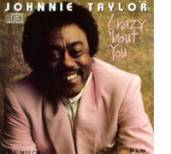 Crazy ‘Bout You
Crazy ‘Bout You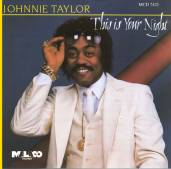 This Is Your Night
This Is Your Night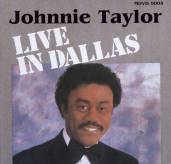 Live In Dallas
Live In Dallas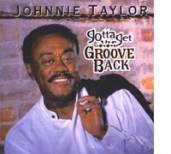 Gotta Get The Groove Back
Gotta Get The Groove Back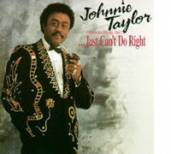 I Know It’s Wrong, But I…Just Can’t Do Right
I Know It’s Wrong, But I…Just Can’t Do Right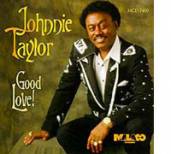 Good Love
Good Love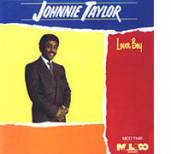 Lover Boy
Lover Boy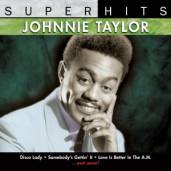 Johnnie Taylor – Super Hits
Johnnie Taylor – Super Hits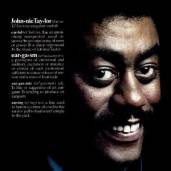 Eargasm
Eargasm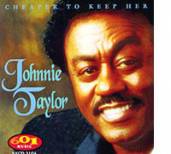 Cheaper To Keep Her
Cheaper To Keep Her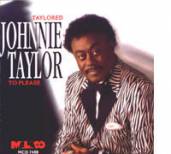 Taylored To Please
Taylored To Please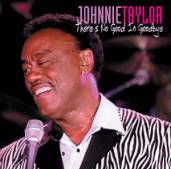 There’s No Good In Goodbye
There’s No Good In Goodbye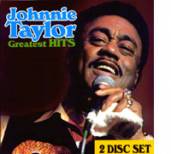 Johnnie Taylor Greatest Hits
Johnnie Taylor Greatest Hits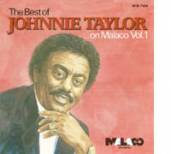 The Best Of Johnnie Taylor Vol. 1
The Best Of Johnnie Taylor Vol. 1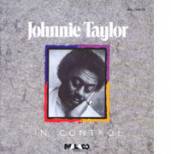 In Control
In Control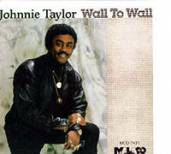 Wall To Wall
Wall To Wall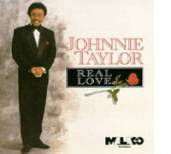 Real Love
Real Love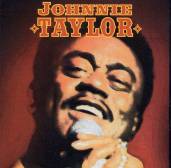 Live At The Longhorn
Live At The Longhorn Buy from:
Buy from:  Buy from:
Buy from:  Buy from:
Buy from:  Buy from:
Buy from:  Buy from:
Buy from:  Buy from:
Buy from:  Buy from:
Buy from:  Buy from:
Buy from:  Buy from:
Buy from:  Buy from:
Buy from:  Buy from:
Buy from:  Buy from:
Buy from:  Buy from:
Buy from:  Buy from:
Buy from:  Buy from:
Buy from:  Buy from:
Buy from:  Buy from:
Buy from:  Buy from:
Buy from: